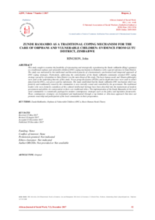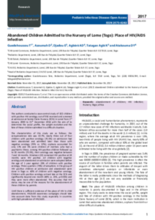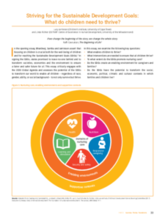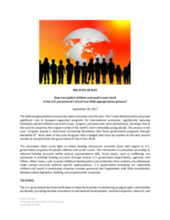Displaying 61 - 70 of 412
This study sought to examine the feasibility of rejuvenating and strategically repositioning the Zunde raMambo (King’s granary) as a traditional orphans and vulnerable children (OVC) coping mechanism in Zimbabwe with a special reference to Gutu District.
The focus of this study is to explore the role of lay health workers in a community organization providing palliative care to orphans and vulnerable children affected by HIV/AIDS, located in rural Bronkhorstspruit, Gauteng Province of South Africa.
The authors conducted a case-control study of 102 children with positive HIV serology out of 956 received and screened at admission at Sainte Claire Nursery (SCN) in Lomé from 1st January 2000 to 31st December 2014 with the aim of to determine the social profile, the weight evolution and the fate of these children admitted in a difficult situation.
This essay critically engages with the 2030 Global Agenda and assesses the potential of the SDGs to transform our world to enable all children – regardless of race, gender, ability, or social background – to not only survive but thrive.
The purpose of this endline evaluation is to assess the CRG, CP and HIV&AIDS achievements against the project goal and outputs.
The purpose of this study was to assess the impact of care at foster homes on the health-related quality of life (HRQOL) of children living with HIV (CLHIV), attending a referral ART Centre, and to compare their HRQOL with children living in their own homes.
The purpose of this chapter [from the book Assisting Young Children Caught in Disasters] is to highlight the impacts of the HIV/AIDS pandemic on young children, particularly those aged eight and below, and identify interventions that have been shown to be efficacious in terms of the socio-emotional welfare of children.
This document sheds some light on where funding discussions currently stand with regard to U.S. government programs for global children and youth issues.
This qualitative study explores 49 orphaned children who were observed in a non-governmental organization group setting in a small, rural village located in Eastern Cape, South Africa.
In this webinar recording, 4Children and KIDSS share learning about how to prepare and plan, at the family and programmatic level, for exiting out of OVC programs.





